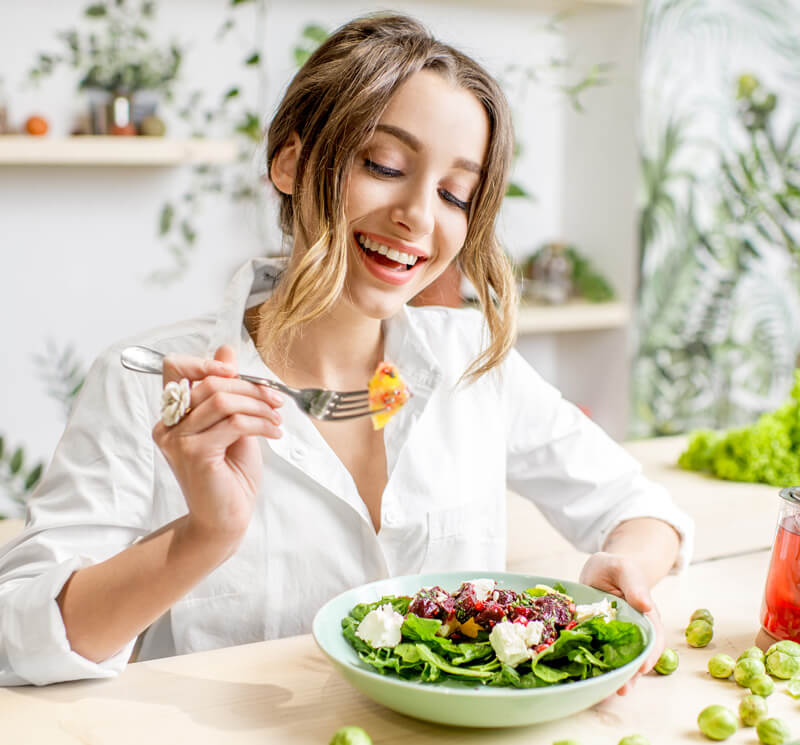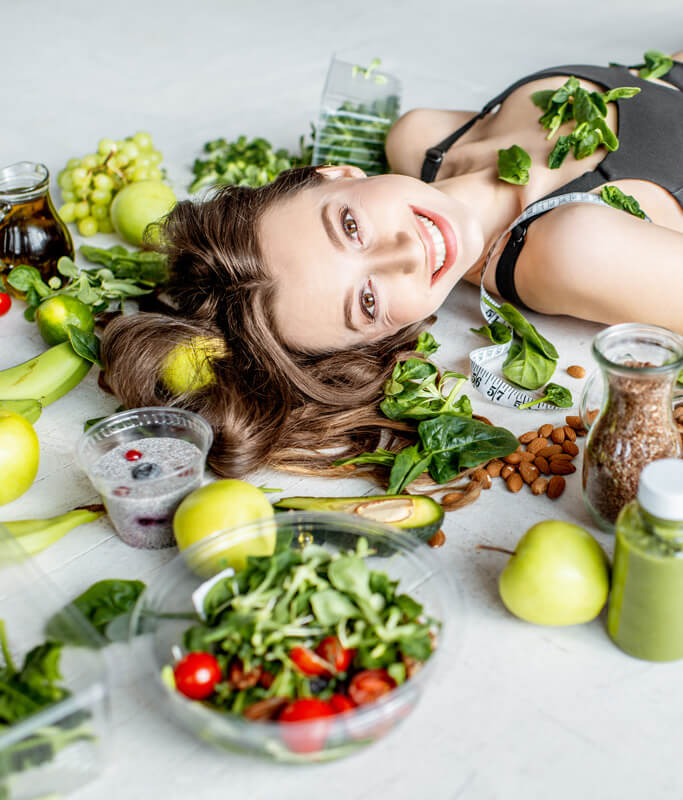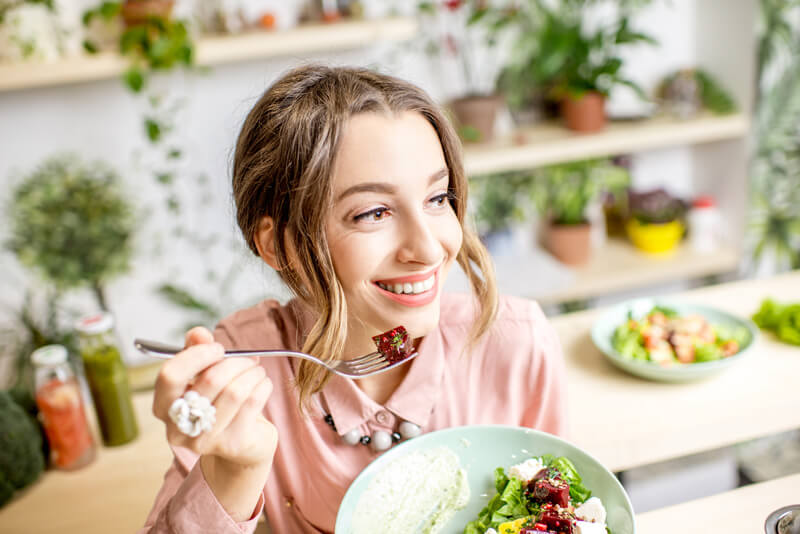Part of skin appearance is the result of external factors – mainly sun-exposure (UV), smoking, pollution, sleep deprivation, stress, nutrition … Prevention is therefore the best way to maintain a young and glowing skin.
Food is more than 25% of the picture when it comes to skin health.
Nutritional strategies will fight the harmful action of unstable molecules – known as free radicals- and skin aging. They include anti-oxydative rich food, fibres and a low glyceamic index diet to regulate insulin, sebum production, inflammation, constipation, acne and many skin lesions…
Action Plan !
The Good, The Bad & The Ugly
Your Allies
Your Enemies
Diets
There is no miracle method that suits everyone! We are all different! We do not have the same age, the same needs, the same goals, the same physical activity, the same tastes, the same medical issues, the same metabolism … The solution will be very different for a mother and her daughter!
A diet is a good idea only when you are sick: if you are coeliac for example, you must remove gluten from the diet
For a healthy person, there is NO need for dietary restrictions; these will lead quite rapidly to food compulsions and the lost kilos will come back … probably more
Most often it only takes a few simple measures, a few changes to your eating routine to get quick and long lasting results,
without dangerous feelings of frustration and without the risk of yo-yo effect … whether you want to lose or gain weight
You are Unique!
The only method that works is the one that suits you. It is personal and unique to you. What worked for your neighbour won’t necessarily work for you.
On the other hand, what ALWAYS works is the program that takes into account all the parameters of your daily life
Your tastes and culture impossible to hold a long-term program that you don’t like. For example, one that contains a majority of vegetables if you are a meat lover / some religions do not allow pork or beef or all animal products, or the association of meats and – dairy products
Your age our needs are very different if your are a growing teenager and if you are menopaused
The fat will not accumulate in the same places at 25 years old and at 50: on the hips, thighs and cheeks for a girl, round the abdomen for her mother
Gender the role and action of hormones are different depending on whether you are a man or a woman; the distribution of fat and muscles will not be the same either
Your metabolism are you pregnant? Menopaused ? an athlete? Do you suffer from water retention?
Your physical activity your energy requirements will be very different depending on your professional activity – behind a desk, training daily on a tennis court, if you travel a lot.
Your health if you suffer from food intolerances, have high blood pressure, if you are bedridden with a broken leg, if you are diabetic and need to stabilize your blood sugar if you are breastfeeding … the plan will not be the same at all
Your sensitivity and appetite we often eat for emotional reasons without really being hungry: because we are bored, we are a fragile teenager, we are sad, angry, or even very happy: cake and champagne to celebrate a birthday or a promotion!
Beware of miracle solutions: while some supplements may be useful, taking various pills or sachets is often a temporary solution and a bad idea in the long run. First, They isolate you from a normal social life; don’t teach you how to control and readjust your eating behaviour. You will quickly get back to your bad habits, your excess pounds and centimetres. probably even more because the body tends to store more when it has suffered. Don’t get carried away in the infernal cycle of a yo-yo weight pattern
You have to take all these aspects into account in order to implement a readjustment of your food intake without changing everything..
Neglecting a single one of these parameters is a big risk of failure… in the long run. But if you don’t change anything in the way you eat, your weight won’t change either. So The key is to take just a few effective measures that are compatible with your personal and lifestyle. Most of all, you have to rediscover the pleasure of food. There is nothing more natural and normal than eating! It should always be a pleasure. Not an obsession / not a source of frustration, not a daily math lessons to calculate the amount of calories on your plate.
Your Dietician
I am here to guide you in this process.
With a practical and psychological approach to building you an effective action plan that does not destroy your joie de vivre
See me face-to-face if you live in London or by video, wherever you are in the world
And remember that pleasure is part of a healthy lifestyle.




